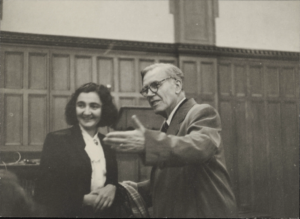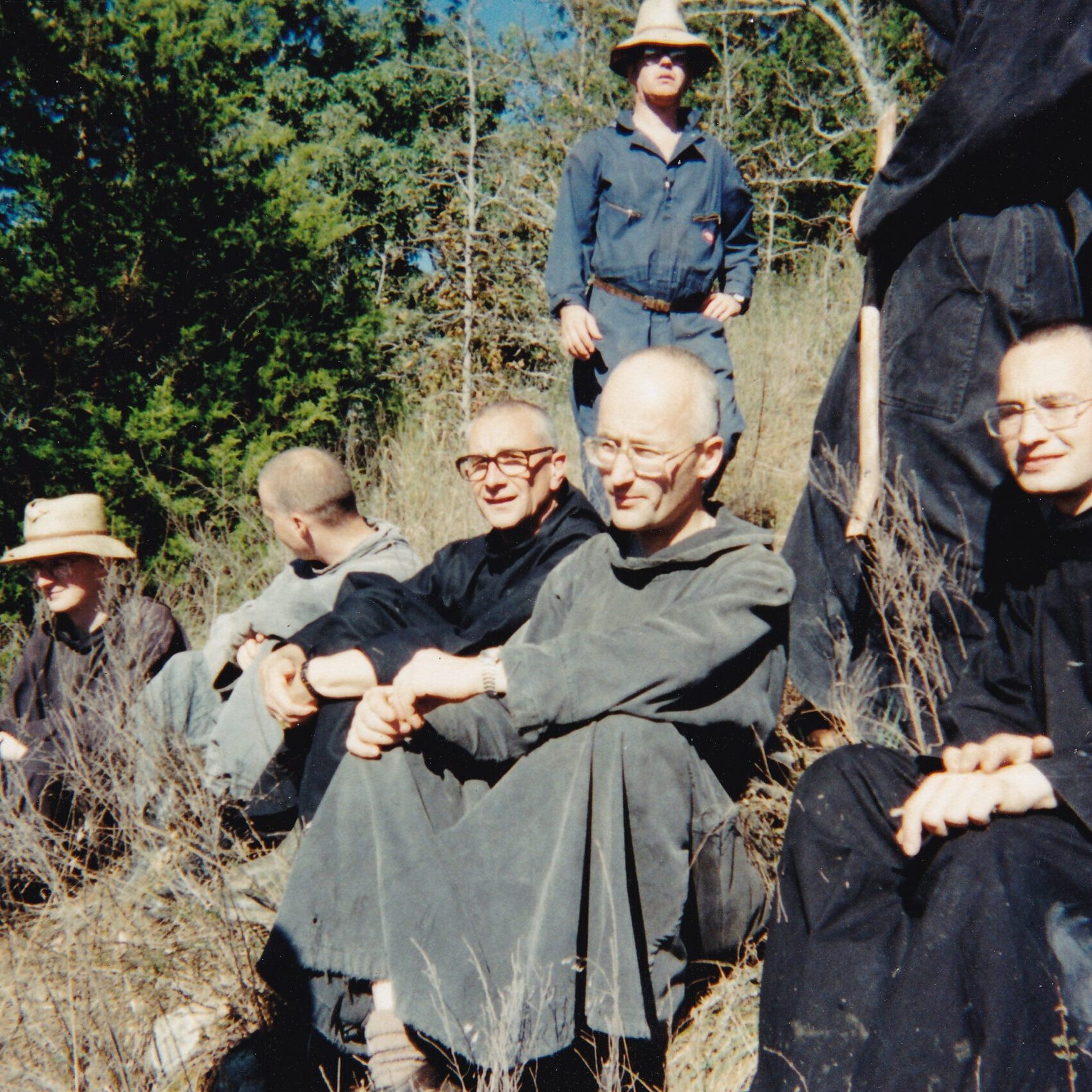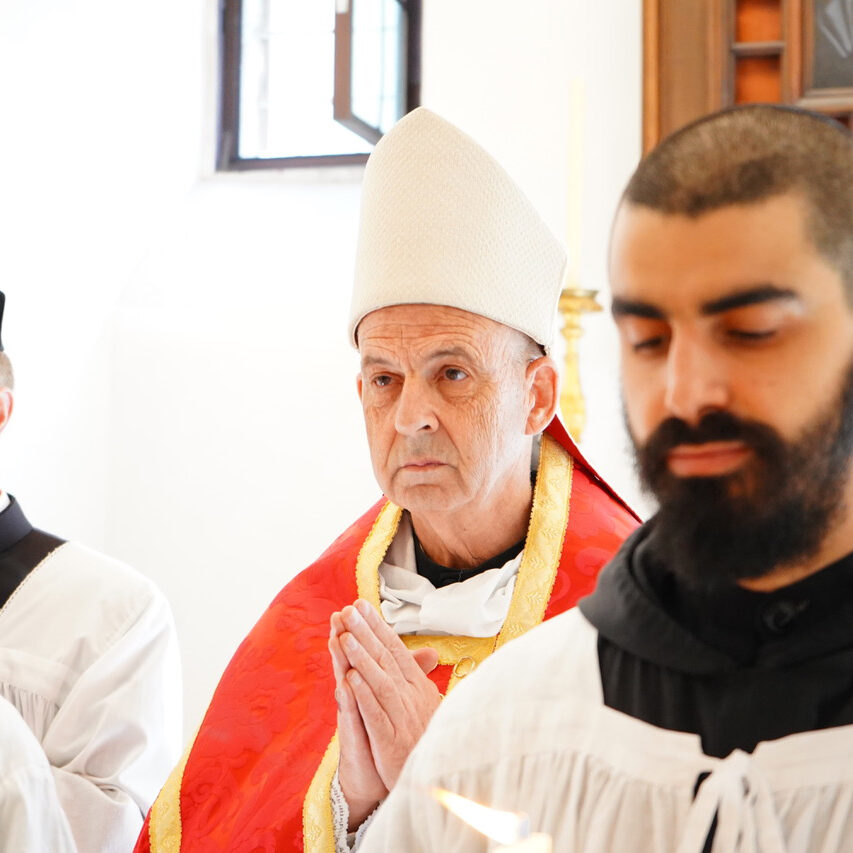Dear Friend of Clear Creek Abbey,
Our Lady of Clear Creek Abbey has been graced over the years with a number of friends, some of them prominent, but most of them—like you and me—famous only in the eyes of God. Who could even count the precious souls or estimate the good we have derived from the treasure of these friendships?
A few weeks ago, I wrote to you about our great mentor and friend, John Senior, the centennial of whose birth we are celebrating this year. There is another “centenarian” in that sense,  one worthy of our loving attention: the late Dr. Alice von Hildebrand (1923-2022), who was a faithful supporter and friend of our monastery from the beginning. It is she who coined the expression: “Friendship is the remnant of paradise,” in an article she wrote for Crisis Magazine (Alice von Hildebrand, “The Canons of Friendship,” Crisis Magazine, May 2006) and which again appeared in a recently published collection of her essays (Remnant of Paradise (Steubenville, OH: Hildebrand Press, 2023), pp. 28-38).
one worthy of our loving attention: the late Dr. Alice von Hildebrand (1923-2022), who was a faithful supporter and friend of our monastery from the beginning. It is she who coined the expression: “Friendship is the remnant of paradise,” in an article she wrote for Crisis Magazine (Alice von Hildebrand, “The Canons of Friendship,” Crisis Magazine, May 2006) and which again appeared in a recently published collection of her essays (Remnant of Paradise (Steubenville, OH: Hildebrand Press, 2023), pp. 28-38).
I first heard of the Hildebrands when I was a monk in France, at Notre-Dame de Fontgombault: our abbot went out of his way to arrange a meeting—in Switzerland, I think—with the eminent philosopher Dietrich von Hildebrand in the mid-70s, not long before the death of both of those two heroes of the faith. They had a number of ideas and concerns in common, including the threat of Communism that still waxed strong in those days and certain troubling currents in the Church. Not long after our foundation was established here at Clear Creek in America, I was contacted by Dietrich’s wife, his former student, Alice. She visited us at least once, although age and occupations prevented her from traveling very much after that.
It was, therefore, a privilege and an honor to spend several hours with her in her home in New Rochelle, New York, one day in 2019 following a conference I attended in New York City (by the way, much of that conference took place in an auditorium on the campus of Hunter College, where Alice taught for decades…). The conversation encompassed a broad range of topics, about which she spoke with warmth and penetration. Her mind remained sharp despite the years, as did her memory. She loved to recall in particular her meetings with Popes Saint John Paul II and Benedict XVI.
At the center of Dr. Hildebrand’s occupations and preoccupations in life was the quest—which became a battle—for Truth. She fought for truth in the academic world (look what that has come to in our own day!); she fought for truth in that ever-so-delicate domain of marriage and the  family, referring to herself as “a champion of femininity” and not a feminist; she poured her soul and every breath into the combat for the truth of genuine Catholic orthodoxy, whether in certain contemporary theological debates, in the arena of popular culture, or in liturgical matters. She was ready to lay down her life, and did so in a real way, to preserve and foster all of the Truth she could know.
family, referring to herself as “a champion of femininity” and not a feminist; she poured her soul and every breath into the combat for the truth of genuine Catholic orthodoxy, whether in certain contemporary theological debates, in the arena of popular culture, or in liturgical matters. She was ready to lay down her life, and did so in a real way, to preserve and foster all of the Truth she could know.
Alice was particularly proud of the fact that she had been for many years, and still was even then, a Benedictine Oblate for which she had taken the name of Sister Maria Abscondita in Corde Jesu (Sister Mary Hidden in the Heart of Jesus). This name is in itself an entire program of spirituality and reveals a vital dimension of the lady’s interior life, more or less unknown to those who followed her public career as an academic and a writer. There was, indeed, nothing she so ardently desired as to live a hidden, contemplative life, even as God constantly led her down a different path, more in the public eye.
I have no idea how many friends Alice von Hildebrand counted, but I suspect the number would amaze anyone who would enter into the secret. Many miss her, as does the Church in America, as do we monks…God alone knows the whole story. In closing these brief remarks allow me to quote once more from Dr. von Hildebrand’s article cited above on the subject of friendship:
Friendship is a precious jewel, and Aristotle was right in viewing it as having the luminous glow of virtue. But how much more can we say of “holy friendship” rooted in Christ, sharing in His love for the loved one? Those blessed by grace, who live up to the Christian canons of friendship, will have a taste of paradise (Ibid., p. 38).
There are other remarkable friendships that our community has enjoyed. I am thinking, in particular of a certain Poor Clare Abbess, but that will have to await another letter…
br. Philip Anderson, abbot






